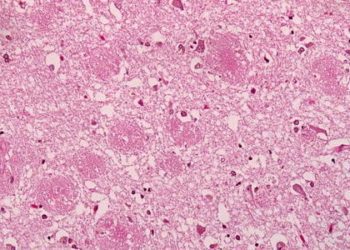Fractional flow reserve-guided PCI decreases the need for urgent revascularization in patients with stable coronary disease [NEJM]
Image:CC
Key findings:
- FFR-guided PCI, in addition to standard medical therapy, reduced the need for urgent revascularization compared to standard medical therapy alone in patients with stable coronary disease
Primer: While it is known that percutaneous coronary intervention (PCI) improves outcomes in patients with acute coronary syndromes, there is controversy regarding its use in managing patients with stable coronary disease. Because the benefit of PCI depends on the presence and extent of myocardial ischemia, fractional flow reserve (FFR – a means to assess the potential of a coronary stenosis to induce ischemia) is a potentially useful means of selecting appropriate patients with stable coronary disease for PCI.
This [randomized] study: Published recently in NEJM, a large, multi-centered, randomized controlled trial sought to explore whether FFR-guided PCI with drug-eluting stents and standard medical therapy provided added benefit compared to standard medical therapy alone. The trial was conducted at 28 sites across Europe and North America. Patients with at least one coronary stenosis with FFR ≤0.80 were randomly assigned to the PCI group or the medical therapy group. Standard medical therapy consisted of daily aspirin, beta-blocker, ACE-I/ARB, and statin. Patients in the PCI group also received aspirin and clopidogrel prior to PCI, and continued clopidogrel for 1 year after having the drug-eluting stent placed. Patients were followed-up for 5 years, and the primary endpoint was a composite of mortality, myocardial infarction, and urgent revascularization.
The trial was stopped early with 888 patients enrolled – 447 randomized to the PCI group and 441 to the medical therapy group. PCI was shown to reduce the incidence of a primary endpoint compared to medical therapy (hazard ratio 0.32; 95% CI 0.19-0.53). Looking at the individual components of the primary endpoint, there were no significant differences between PCI and medical therapy in terms of all-cause mortality (hazard ratio 0.33; 95% CI 0.03-3.17) or the incidence of myocardial infarction (hazard ratio 1.05; 95% CI 0.51-2.19). There was, however, a considerable lower incidence of urgent revascularization in the PCI group (hazard ratio 0.13; 95% CI 0.06-0.30) compared to the medical therapy group.
In sum: FFR-guided PCI with standard medical therapy significantly improved clinical outcomes compared to standard medical therapy in patients with stable coronary disease. Specifically, in patients with a stenosis of FFR ≤0.80, adding FFR-guided PCI to standard medical therapy reduced the need for urgent revascularization, compared to standard medical therapy alone.
© 2012 2minutemedicine.com. All rights reserved. No works may be reproduced without written consent from 2minutemedicine.com. DISCALIMER: Posts are not medical advice and are not intended as such. Please see a healthcare professional if you seek medical advice.






